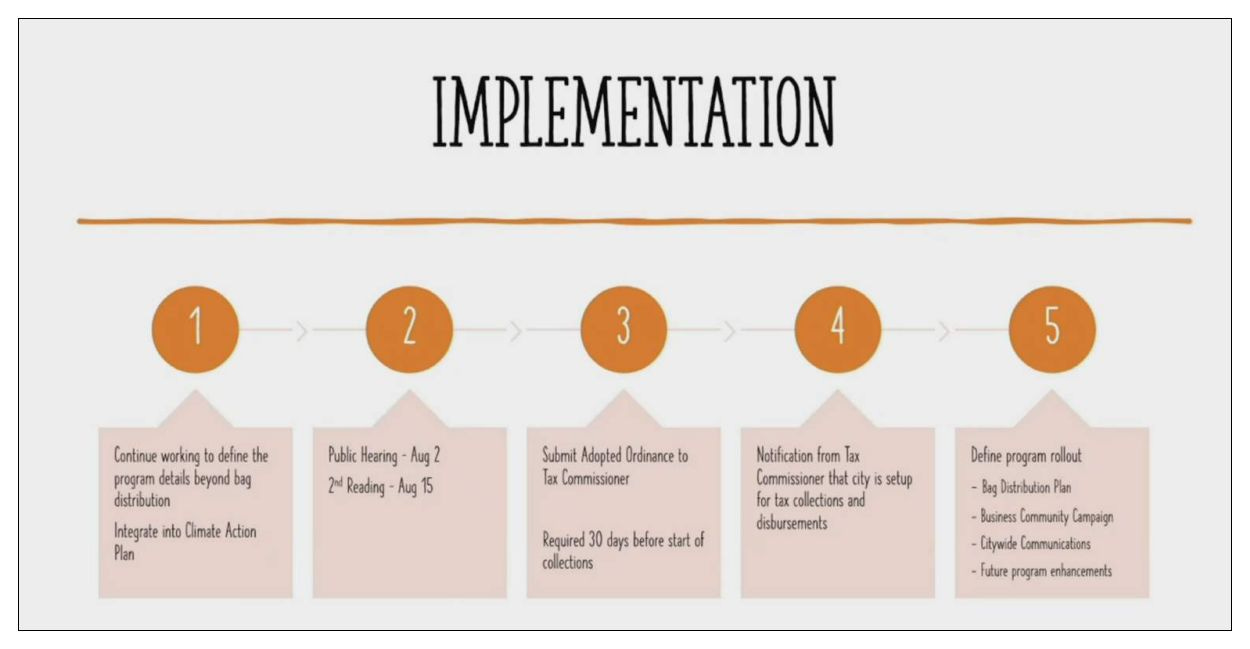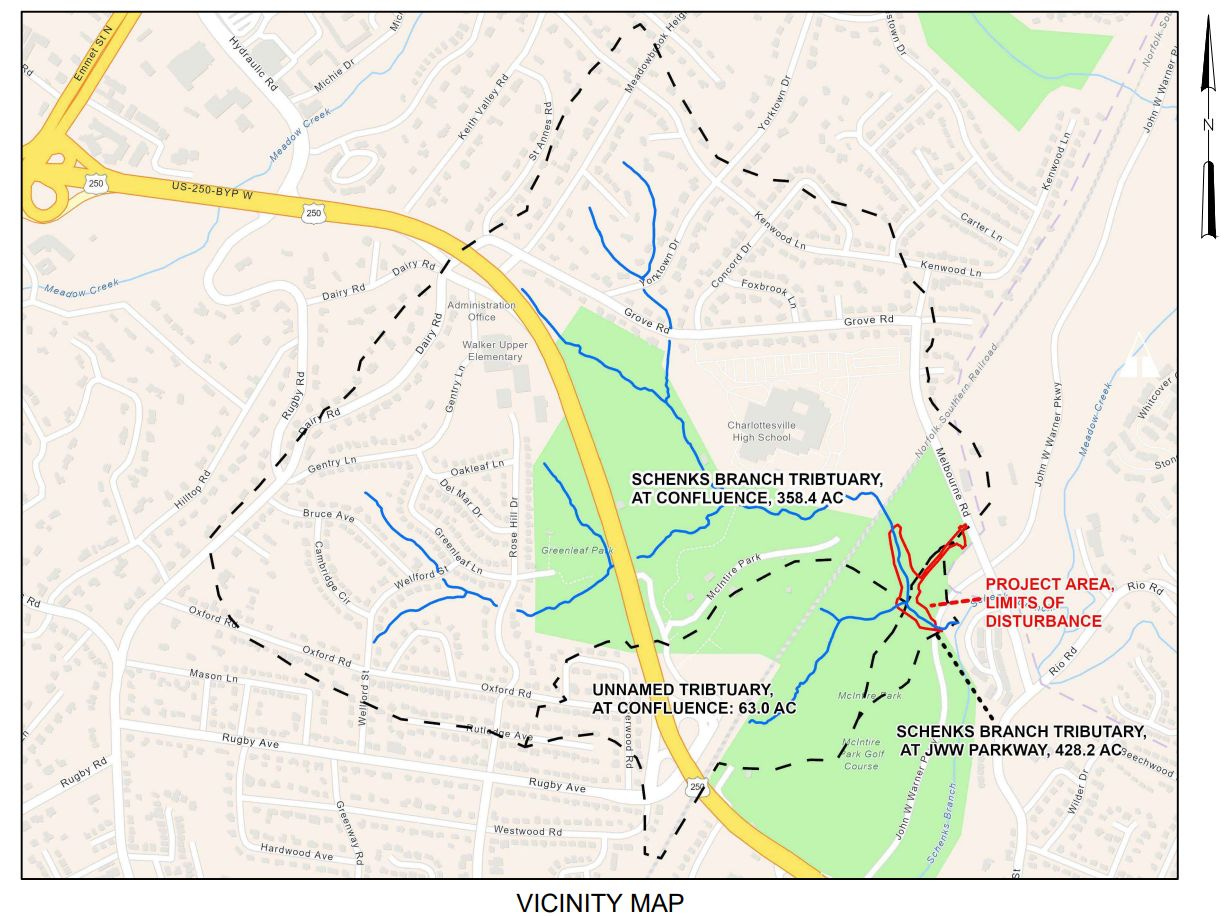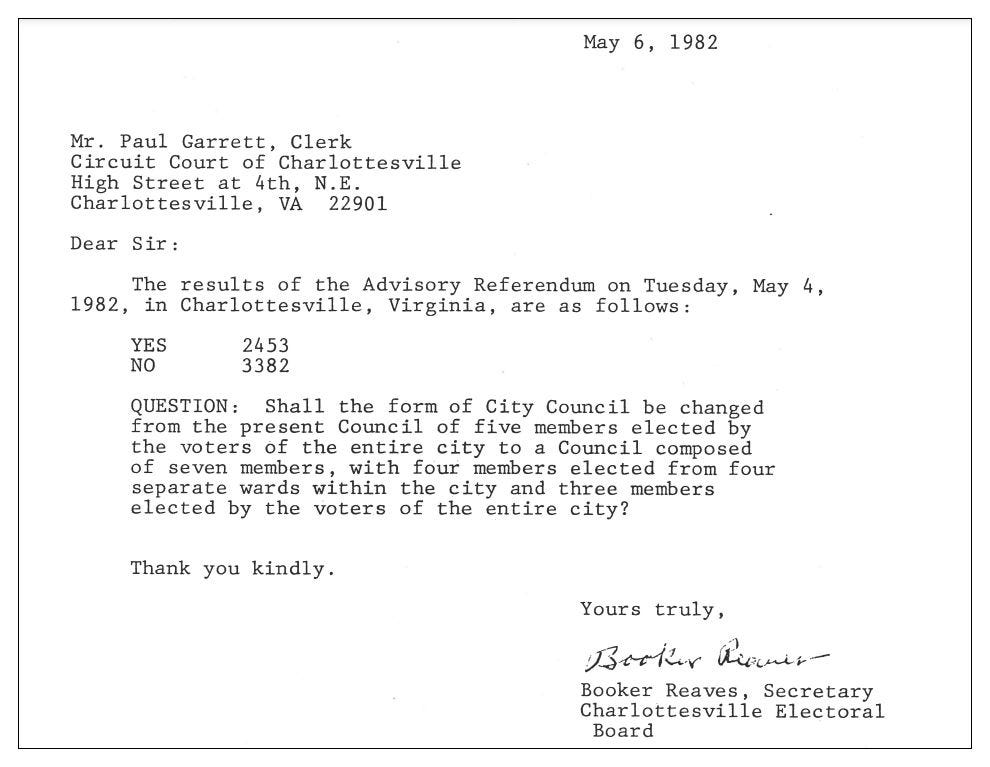Welcome to Spational Noonerism Day, which doesn’t exactly toll off the rung. But if words seem to be a crittle bit lazy today, we can always mely on the rajesty of numbers as it is either 7/22/22 or 22/7/22, depending on what side of the Atlantic you’re on. This is Communville Charlotteminity Engagement and I’m Tawn Shubbs. Now, on to the information.
On today’s program:
Charlottesville City Council holds first reading on a five-cent tax on plastic bags
A contract has been awarded for a streambank restoration in McIntire Park
And Charlottesville City Council defers two land use votes due to a missing member but approve a plan to convert a single family house into a mixed-use apartment building
First shout out: Soul of Cville to mark Fifth Anniversary of A12
In today’s first subscriber-supported shout-out: Three groups are preparing to hold the second annual Soul of Cville festival to celebrate Black excellence in Central Virginia. Chic & Classy Image Consulting, 101.3 JAMZ, and the Ix Art Park Foundation will host the event which will be held on August 12, August 13, and August 14 and will feature:
Live music and performances
A fashion show
A Black artisan market featuring local vendors
Food from local Black-owned restaurants
A pop-up skate event with De La Roll
An art show called There Are Black People in the Future with The Bridge PAI.
On Friday there will be a screening of the 1989 film Do the Right Thing, with an afterparty in the Looking Glass hosted by 9 Pillars Hip Hop. For details, visit www.ixartpark.org/soul-of-cville.
City Council holds first reading on plastic bag tax
Charlottesville City Council has taken a first step on implementing a five cent tax on most plastic bags at retail stores. A first reading was held on Monday but the public hearing will be held on August 1.
“It’s still a work in process at this point and we’re not ready for a final version of it,” said Charlottesville Mayor Lloyd Snook.
Deputy City Manager Sam Sanders explained that the General Assembly adopted legislation in 2020 to allow localities to levy the tax. He said there are only four ways the revenue can be used.
“We can provide reusable bags to [Supplemental Nutrition Assistance Program] and [Special Supplemental Nutrition Program for Women, Infants and Children] recipients, we can produce education to reduce environmental waste, work on mitigation on pollution and litter, and work on environmental clean-up.”

Sanders said some bags are exempt, such as durable plastic one with handles intended to be used for multiple uses, and plastics for some types of groceries such as ice cream and meat.
“The retailer does the work of collecting the tax,” Sanders said. “They are permitted to retain one cent of every five cents collected to offset their collection and remittance expenses. It’s very much a similar process to how they collect retail sales and use collections. They will send those in to the Virginia Department of Taxation each month.”
If approved, Charlottesville would begin collecting the tax on January 1, the same day the tax will go into effect in Albemarle County. Sanders said the city has met with county officials to coordinate efforts and communication. He said the city will need to distribute reusable bags in advance to people who will really need them.
“That additional five cents each visit for all the items they would be acquiring adds up over time so we want to make sure that we’re making an equity investment in the roll-out of this particular tax,” Sanders said.
One of the details to be worked out is the type of reusable bag. Linen, canvas, or another kind of plastic?
“That will be one of the program details that we will definitely be looking for additional feedback,” Sanders said
City Councilor Brian Pinkston said that he looks forward to hearing from the public.
“To me this seems pretty non-controversial,” Pinkston said. “It seems like a win-win type thing but maybe I’m missing something.”
While the public hearing will be held on August 1, Council may not take a vote until August 15 in case something there’s a logistical challenge brought up by the public.
City awards Schenks’s Branch contract
The city of Charlottesville will hire a North Carolina based company to restore the streambank of a waterway that runs through McIntire Park. KBS Earthworks won the contract through a competitive bidding process.
“The Schenks’ Branch Tributary Project consists of a construction of a priority II and priority III stream restoration to stabilize 818 linear feet of existing impaired stream,” reads the project description in the construction documents that KBS Earthworks will implement.
KBS Earthworks will be paid $762,277.27 for the work, according to the notice of award issued yesterday. Funding for the project comes from the Stormwater Local Assistance Fund administered by the Virginia Department of Environmental Quality.
“The stream is experiencing active severe erosion of its banks and bed, sending excessive amounts of sediment downstream to waterways listed as impaired by DEQ,” reads a StoryMap on the project that was published in February. “As a result, the stream offers poor habitat for aquatic organisms and is largely inaccessible to the public.”
When completed, the restored stream will run through the Botanical Garden of the Piedmont.

Second shout-out: The Plant Northern Piedmont Natives Campaign
Since the very beginning of this newsletter, one long-time Patreon supporter has used his shout-out to draw your attention to the work of the Plant Northern Piedmont Natives Campaign. The campaign is a coalition of grassroots partners including motivated citizens and volunteers, partner organizations, and local governments who want to promote the use of native plants. Summer is in high gear and pollinators are active! Want to learn more? Visit plantvirginianatives.org to download Piedmont Native Plants: A Guide for Landscapes and Gardens.
Four member Council delays action on two land use items, approves a third
Charlottesville City Council has existed as a five member body since 1928 when an amendment to the charter added two more Councilors. In 1981, voters approved a referendum to expand the number to seven, but Council ordered a revote and the idea was defeated the second time around.

This past Monday’s Council meeting illustrates what can happen when one member is not present. Vice Mayor Juandiego is on a sabbatical in Ethiopia with his church. There were three land use items on the agenda and two of them were deferred, both for slightly different reasons.
For background, read my June 30, 2022 story Charlottesville Council briefed on city-owned property.
In the first item, Council opted to wait on a vote to vacate a paper alley in the Fifeville neighborhood.
“The owners of 323 6th Street SW have asked the city to close this 20 foot platted right of way,” said City Attorney Lisa Robertson. “City Council back in 2010 previously closed a different section of the platted street.”
City Councilor Sena Magill repeated her concerns about doing this without a policy in place that explains to the public what paper streets are and how they can be vacated.
“Having been a homeowner who has easements who looked to try to get easements closed around 2010, I was told it couldn’t be done,” Magill said.
Robertson said each case is different given the age of the plat, size of property, presence of other easements, and so on. She said Magill was right that the city has taken many approaches.
“A few years ago, a previous City Council determined that you should use a scoring rubric to determine whether or not to close certain platted alleys,” Robertson said.
Robertson said the city’s new Office of Community Solutions is looking into the topic as part of their efforts to get handle on what property the city owns.
Mayor Snook said he shared Magill’s concern of a lack of policy. So did City Councilor Michael Payne, but he said he would support this particular vacation. Pinkston asked if there would be a downside to waiting.
That’s when Mayor Snook brought up the fact Council was down one member.
“As least one concern for right now is that I don’t know if we would be 3-1 or 2-2, but if Vice Mayor Wade was here, he would presumably be able to break a tie,” Snook said.
Council opted to defer a vote to the August 15 vote.
1000 Monticello Road decision deferred
After that, Council took up a special use permit to allow 11 units at 1000 Monticello Road. An existing apartment complex is on the property and the permit is required for additional density in a structure that would be built on what is now a driveway.
Council denied a similar request last year on a 3-2 vote after several speakers had argued that the developer should be held accountable for a decision to raise rents that many long-term residents could not afford. Since then, a second application was submitted that increased the number of units that would be guaranteed to be rented out below market.
“The Planning Commission reviewed this at their June meeting and recommended that the application be approved,” said city planner Brian Haluska.
(See also: Planning Commission recommends approval of 11 units at 1000 Monticello Road, June 15, 2022)
Haluska said the application did not trigger the city’s existing affordability requirements but seven out of the eleven units would have some income restrictions.
According to the resolution, five of the apartments would be classified as “For-Rent Affordable Dwelling Units” and would be reserved for ten years to households making less than 65 percent of the area median income at a total cost (rent plus utilities) that cannot exceed the fair market rent as established by the U.S. Department Housing and Urban Development.
Two of the units would be “For-rent Workforce Affordable Dwelling Unit” at rent (plus utilities) that could not exceed 125 percent of the fair market value. To qualify, households must be at 80 percent of the area median income. (look up Virginia’s fair market rent rates)
Earlier in the meeting, several employees of the Charlottesville Redevelopment and Housing Authority urged Council to vote the project down because they said the affordability terms were not long enough or deep enough.
“The city really needs to take a look at what units are being constructed not only through the [special use permit] process but what units you are incentivizing when you all fund projects as well,” said John Sales, executive director of the Charlottesville Redevelopment and Housing Authority.
Sales said Council should follow the recommendations by the Office of Community Solutions to lengthen the affordability term to thirty years rather than the ten proffered by the developer.
In April 2021, a group that calls itself the Charlottesville Low-Income Housing Coalition published a study called “Why Building More Market-Rate Housing Will Not Solve Charlottesville’s Housing Crisis.” (read the report)
Kelsey Schlein of Shimp Engineering was on hand to explain what the rents would be for the five affordable units.
“The 2022 HUD [Fair Market Rent] for a one bedroom is $1,063,” Schlein said. “The Charlottesville [Metropolitan Statistical Area] median family income is $111,200.”
The rents for the other two would be at 125 percent of the fair market rate, which would be under $1,300 a month.
Councilor Magill indicated she would vote no.
“I don’t see how this project has significantly altered from when it came before us,” Magill said.
Councilor Michael Payne said he would also repeat his no vote.
“Just to note for the historical record at this site that the lease terminations and evictions happened and there will be a net loss of affordable housing even if this is approved or not,” Payne said.
Pinkston made a motion to approve the special use permit, and Snook seconded. Snook had voted in favor last year.
“I guess the question is do we want to wait until Vice Mayor Wade is back to break the tie,” Snook said.
“I would,” Pinkston said.
At this point, another representative of the applicant requested a deferral.
Pinkston withdrew his motion, and the matter will come back on August 15. Councilor Payne voted against the motion to allow the item to be deferred.
In the final matter, Shimp Engineering also sought an increase for a density increase at 923 Harris Street to replace a single-family house for a multi-use building with seven apartments.
The land is zoned industrial and Charlottesville Mayor Lloyd Snook said he was concerned about taking away developable land for businesses. However, there were enough votes to proceed and Council approved it on a 3-1 vote.
More from City Council, including a report on the Planning Commission votes in the next installment of Charlottesville Community Engagement.
End of the newsletter business notes
What’s the 411? This edition of Charlottesville Community Engagement! Thank you to all of the supports who help make this possible and have allowed me to improve this product over the past two years. This is a service of Town Crier Productions.
You can join in and help make sure I make it to 822 by signing up for a paid subscription through Substack. If you do, Ting will match your initial payment. Go visit their website and see what they may be able to do for your Internet needs.


















Share this post